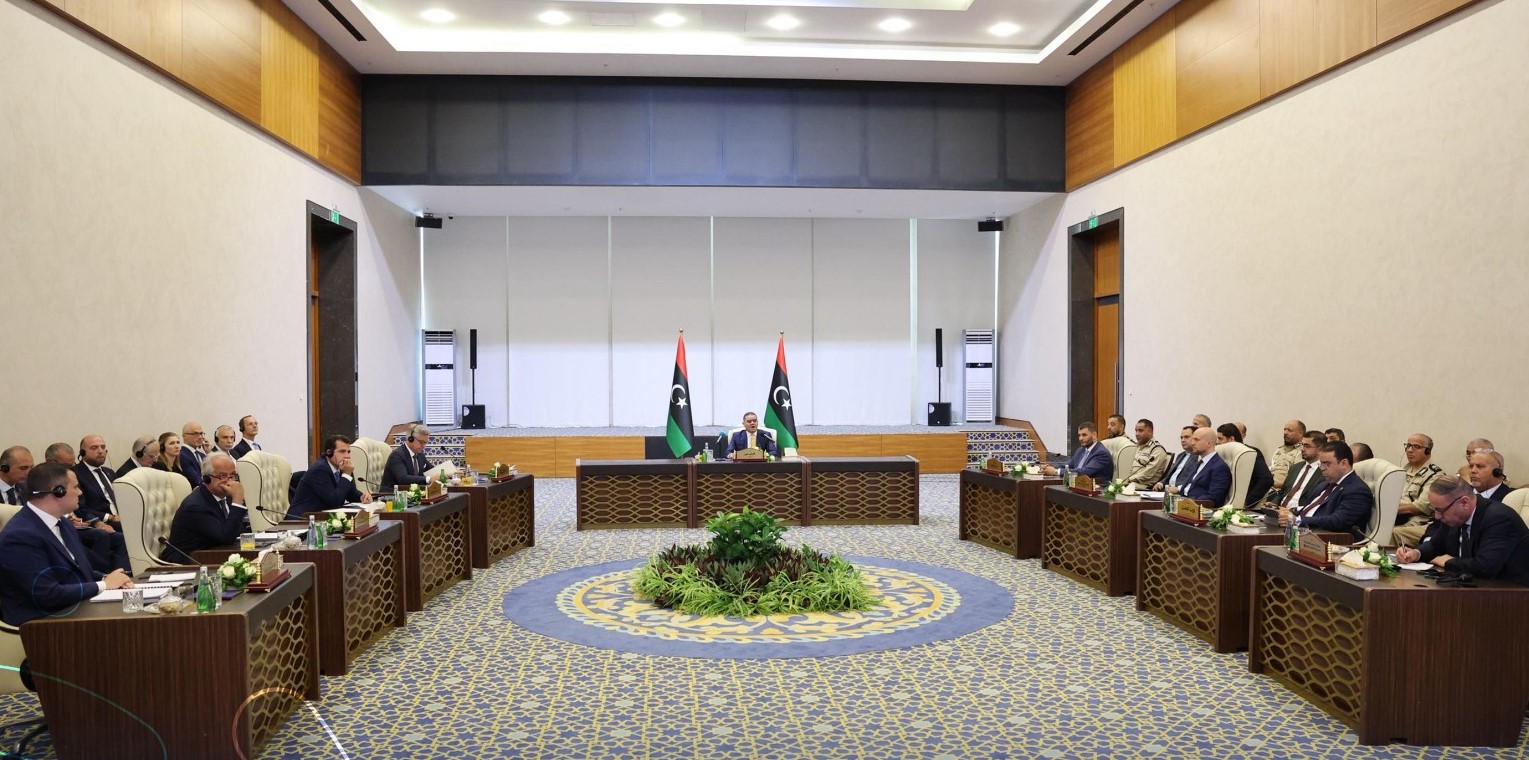Dbaiba holds an international meeting in Tripoli.
Pulbished on:
Tripoli, July 8, 2025 (LANA) – The Prime Minister of the Government of National Unity, Abdul Hamid Dbaiba, stressed that Libya is engaged in a real confrontation against the gangs and armed groups that profit from the issue of irregular migration and are involved in human smuggling and organized crime. He pointed out that these elements pose a direct threat to local and international security.
This came in his speech during the high-level ministerial meeting hosted in the capital, Tripoli, on Tuesday, with the attendance of a number of interior ministers and representatives of European and international institutions. The meeting discussed the growing challenges associated with the phenomenon of irregular migration, in light of the growing need for a collective approach to confront this complex issue.
Dbaiba explained that the government, from the beginning of this phase, has tasked the Ministry of Interior with preparing a comprehensive national plan to address the migration issue. This plan is based on effective cooperation with international partners and reflects a clear political will to build sustainable solutions.
The Prime Minister also indicated that this plan complements a large-scale national campaign, which is being prepared for launch with the support of several friendly countries. The campaign aims to dismantle smuggling networks, strengthen border control, and restore order in areas long exploited by organized crime.
Dbaiba emphasized that addressing the migration issue cannot be separated from the overall security context, as progress in extending state authority and dismantling hotspots of chaos directly reflects on border control and curbing illegal activities.
He added that the government's vision is not limited to reducing migration flows alone, but also includes building effective institutions that respect sovereignty and guarantee human dignity. He also called for an international partnership based on mutual respect and shared responsibilities, rather than temporary solutions.
For his part, the acting Minister of Interior, Major General Imad Trabelsi, explained that the Libyan plan begins with increasing the rate of voluntary repatriation, which will include the deportation of all those who entered the country illegally and caused security or social problems.
He pointed out that the number of irregular migrants in Libya ranges between three and four million people.
Trabelsi emphasized that the situation requires serious international cooperation, adding that the government aspires to sign a formal agreement with the European Union to institutionally and effectively regulate this issue, ensuring burden-sharing and promoting stability in Libya and the region.
During the meeting, the Ministry of Interior also presented the plan to combat illegal immigration, which aims to enhance security inside and outside cities, control and secure borders to prevent the flow of migrants and deport those inside the country, and regularize the status of those who need work in accordance with state laws.
The meeting was attended by the European Commissioner for Home Affairs, Magnus Bruns; the Greek Minister of Migration and Asylum, Athanasios Pliveris; the Italian Minister of the Interior, Matteo Piantedosi; the Maltese Minister of Home Affairs, Security and Employment, Byron Camilleri; the Ambassador of the European Union Delegation to Libya, Nicola Orlando; and the Director-General of the EU's Directorate-General for the Middle East, North Africa and the Gulf, Ambassador Stefano Sannino.




